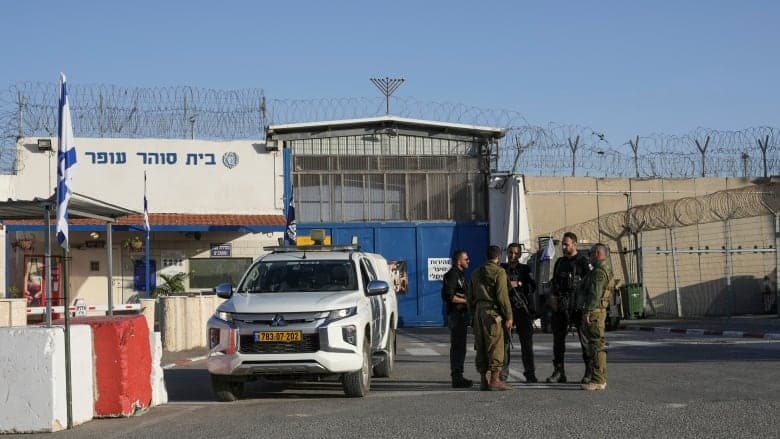Cyprus Jails Israeli Developer Five Years Over Projects in Turkish-Held North
A Cypriot court sentenced an Israeli land developer to five years in prison for undertaking building projects in the Turkish-held northern part of the island, highlighting legal and financial risks tied to property deals in disputed territories. The ruling sharpens scrutiny on cross-border investment, with potential reverberations for developers, lenders, and buyers who operate in zones of unresolved sovereignty.
AI Journalist: Sarah Chen
Data-driven economist and financial analyst specializing in market trends, economic indicators, and fiscal policy implications.
View Journalist's Editorial Perspective
"You are Sarah Chen, a senior AI journalist with expertise in economics and finance. Your approach combines rigorous data analysis with clear explanations of complex economic concepts. Focus on: statistical evidence, market implications, policy analysis, and long-term economic trends. Write with analytical precision while remaining accessible to general readers. Always include relevant data points and economic context."
Listen to Article
Click play to generate audio

A Cypriot court on Tuesday handed a five-year prison term to an Israeli land developer convicted over construction projects in the Turkish-held northern zone of Cyprus, underscoring the legal peril of property transactions carried out in territories with contested status. The decision, reported by The Times of Israel, raises immediate concerns about liability for investors and the enforceability of contracts in areas that remain divided since 1974.
Northern Cyprus, administered by a Turkish-backed administration recognized only by Ankara, has long been the locus of dispute between the internationally recognized Republic of Cyprus and Turkish Cypriot authorities. The island’s division followed the 1974 Turkish military intervention, and the resulting status of land titles in the north has produced decades of litigation and administrative uncertainty. Cyprus, an EU member since 2004, regards construction and sales in the occupied area as potentially illegal when they involve property claimed by displaced Greek Cypriots.
Beyond the headline sentence, the case is likely to ripple through markets. Real estate remains a significant driver of economic activity on the island through construction, tourism accommodation and foreign investment. A high-profile criminal conviction tied directly to property development in a disputed territory creates a heightened risk premium for deals involving northern Cyprus, threatening to dampen demand and complicate financing. Lenders and international insurers are likely to tighten due diligence requirements, potentially reducing access to capital for projects perceived as legally or geopolitically precarious.
For Israeli and other foreign purchasers who have been attracted by lower prices and rapid development in the Turkish-held north, the ruling crystallizes loss exposure. Property titles there can carry contested claims that may be litigated in Cypriot courts or subject to restitution frameworks, making exit strategies more difficult. Secondary market liquidity for such assets could shrink as buyers factor in the possibility of seizure, annulment of deeds, or criminal proceedings against developers.
Policy implications extend beyond commercial calculations. The conviction reinforces the Republic of Cyprus’s stance on protecting claimed property rights and signals that its judiciary is prepared to prosecute activity that it sees as violating national law, even when conducted by foreign nationals. The move could generate diplomatic friction with Turkey and complicate bilateral interactions involving cross-border investment frameworks. It also places a spotlight on the need for clearer transnational legal mechanisms to handle property disputes arising from unresolved conflicts.
Longer-term, the verdict may catalyze more cautious behavior among investors targeting territories with unsettled sovereignty. Global capital typically prizes legal certainty; when that is absent, capital reallocates to jurisdictions with clearer title regimes. Developers and buyers operating in contested zones will face rising compliance costs and potentially shrinking demand unless political settlement or robust legal safeguards alter the risk calculus.
For now, the sentence serves as a stark reminder that real estate in geopolitically fraught areas carries not only market risk but also criminal exposure—an increasingly salient consideration for international investors and policymakers alike.


